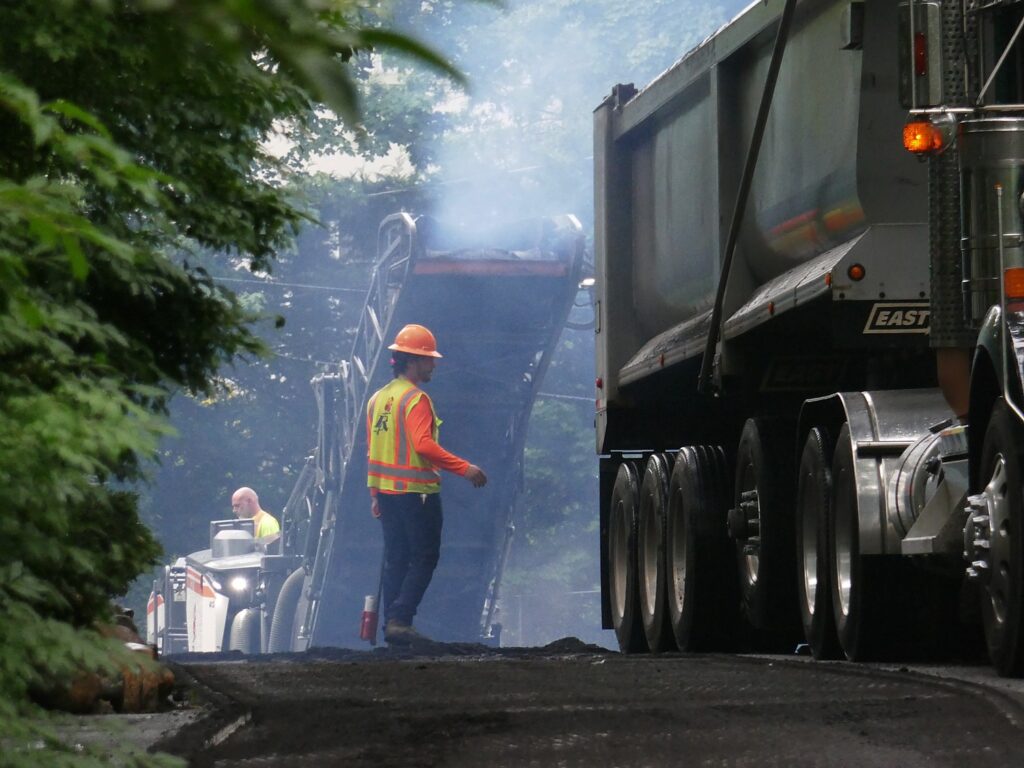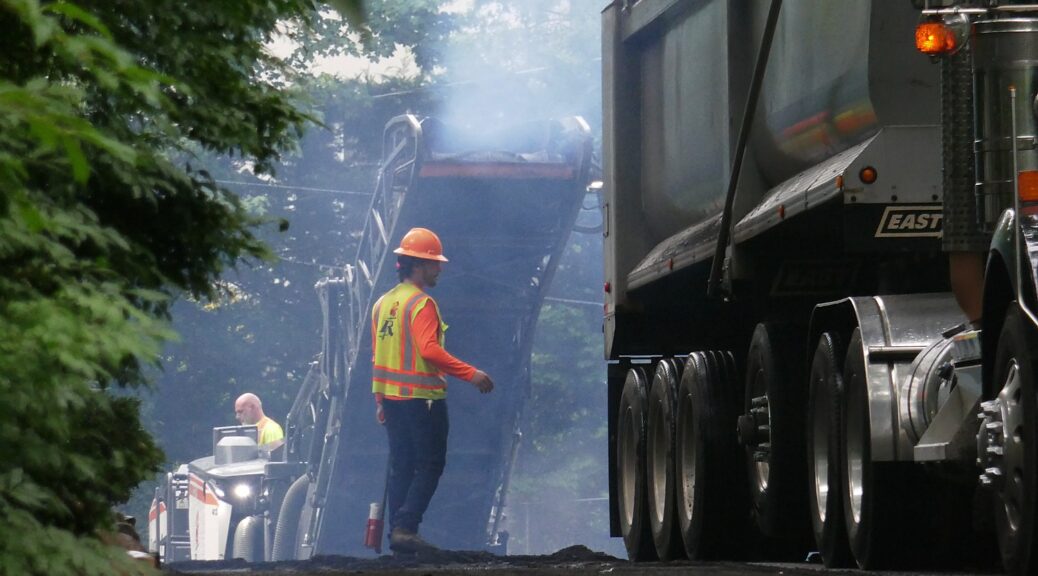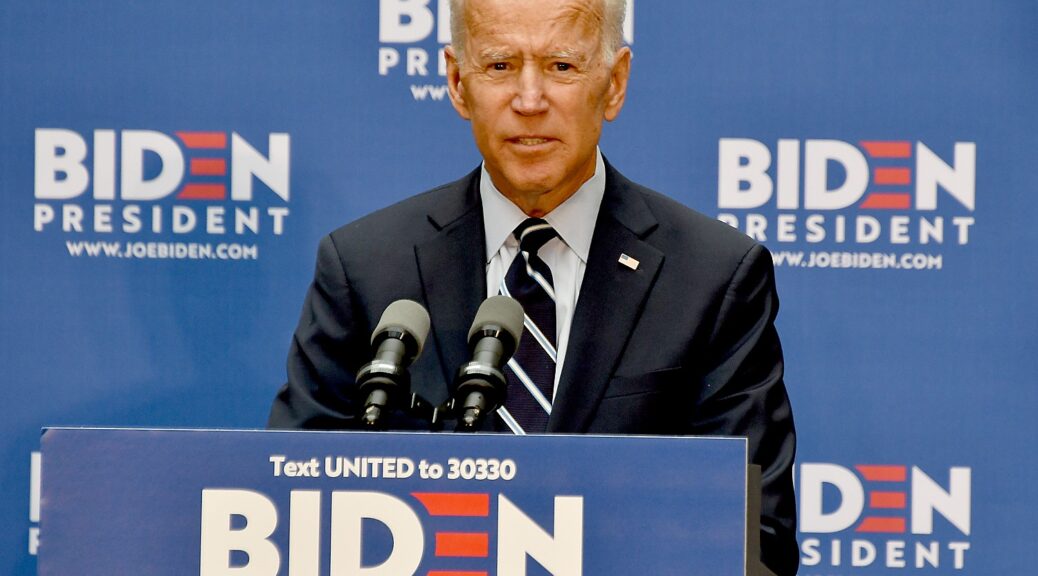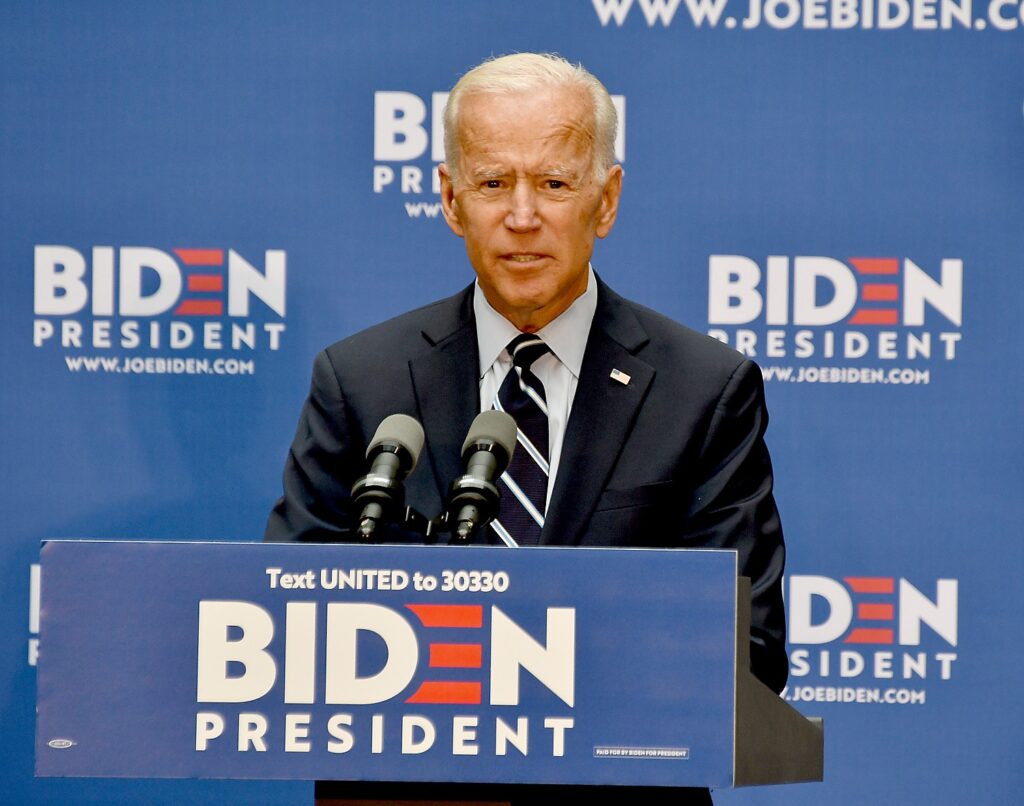New actions announced this week empower workers to grow the economy from the middle out and the bottom up—a core pillar of Bidenomics

President Biden promised to be the most pro-worker and pro-union President in American history, and he has kept that promise. Support for unions is at its highest level in more than half a century, inflation-adjusted income is up 3.5% since the President took office, and the largest wage gains over the last two years have gone to the lowest-paid workers. The unemployment rate is near a 50-year low, and a greater share of working-age people have a job today than at any other time in more than two decades. Under the leadership of the Biden-Harris Administration, all workers—including those who are often left behind in recoveries—are experiencing record-low unemployment rates.
Under Bidenomics, America is seeing a historic level of public and private investment in manufacturing and new industries that will create good-paying jobs that Americans can raise a family on and build a community around. The President continues to fight to ensure all Americans get fair pay for a hard day’s work and have a free and fair choice to join a union.
In advance of Labor Day, the Biden-Harris Administration is announcing new actions this week to empower workers by investing in America’s clean energy workforce, establishing pathways into high-paying and union jobs, demonstrating the benefits of unions, and extending critical wage protections. These actions include:
Ensuring Clean Energy Investments Support High-Quality and Union Jobs
- Creating good-paying jobs in clean energy. The Department of the Treasury and the Internal Revenue Service published a historic proposed rule to support good-paying jobs and workforce development made possible by incentives in the Inflation Reduction Act (IRA). Many of the IRA’s clean energy deployment tax incentives are increased by five times if taxpayers pay workers prevailing wages and use Registered Apprentices. The Notice of Proposed Rulemaking (NPRM) provides clarity about how these incentives work, including penalty and correction provisions for those who fail to meet the requirements, and promotes worker-centric practices. The NPRM also encourages the use of qualifying Project Labor Agreements, which guarantee workers good-paying jobs, help construction contractors finish complex projects on time and on budget, and can establish equitable pathways into construction careers.
- Supporting a fair and just electric vehicle transition. The Department of Energy opened applications for the $2 billion Domestic Manufacturing Conversion Grants program, created by the IRA. The program will provide funding for auto manufacturers transitioning from internal combustion engine vehicles and components to electric vehicles and components. In line with the President’s call for a transition that protects workers, this program will prioritize applications from facilities that are at risk of closing or recently closed and reward applicants that retain existing workers, have strong labor partnerships, pay high wages, and convert facilities while remaining in the same community. The Department of Energy Loan Programs Office is also facilitating access to $10 billion in capital for auto factory conversions. The Office plans to prioritize the review of applications for projects in locations with a long history of auto manufacturing and demonstrate strong workforce practices and labor standards.
Strengthening electric vehicle (EV) battery supply chains and supporting high-quality jobs, including for auto workers. The Department of Energy is releasing a second-round Notice of Intent for $3.5 billion for the Battery Manufacturing grant programs under the Bipartisan Infrastructure Law. The program will help expand domestic manufacturing of batteries for electric vehicles and the nation’s grid, as well as for battery materials and components currently imported from other countries. This Notice of Intent outlines the direction for the next phase of the program, which will support communities with experienced auto workers and a history of producing vehicles, applicants with strong workforce practices, and applicants who plan to create high-quality jobs.
Demonstrating the Union Advantage
- Conducting analysis on how unions benefit the economy. The Department of the Treasury released a first-of-its-kind report that finds that unions help grow the economy by reducing inequality, raising incomes, increasing savings (including retirement savings), and broadening homeownership. According to the report, which was released as part of the White House Task Force on Worker Organizing and Empowerment chaired by Vice President Kamala Harris, union members make higher wages and are more likely to earn critical benefits like retirement, health care, child care, life insurance, and sick leave. The report also finds that all workers—even non-union workers and workers who have been laid off—experience gains from greater unionization.
Extending Overtime Protections
- Proposing new rules that would provide millions of workers with overtime protections. The Department of Labor released a proposed rule to increase the overtime salary threshold from under $36,000 per year to roughly $55,000 per year. Under this proposal, more salaried employees making less than $55,000 per year and working more than 40 hours a week would receive at least one and one-half times their regular rates of pay for the overtime hours they work. The proposed rule would extend overtime pay to as many as 3.6 million hardworking Americans.
These actions build on historic support for workers and unions since Day One of the Biden-Harris Administration, including:
Increasing Wages
- Raising wages for construction workers. In August, the Department of Labor (DOL) published a final rule updating the Davis-Bacon Act prevailing wage standards for the first time in nearly 40 years. The rule affects more than one million workers constructing $200 billion in federally funded or assisted projects, who will receive higher wages over time. Nearly all of the significant construction programs contained in President Biden’s Bipartisan Infrastructure Law, CHIPS and Science Act, and Inflation Reduction Act require or provide strong incentives for the use of Davis-Bacon prevailing wages—which ensures even more workers will benefit from DOL’s new rule.
- Protecting workers’ pay. The Biden-Harris Administration has recovered more than $690 million for more than 440,000 low-paid workers across the nation. The Administration enforces laws that protect these workers from being victims of wage theft and exploitation when they were not paid minimum wages or hard-earned overtime wages, were denied their tips, or were misclassified as independent contractors.
Supporting Workers’ Right to Organize
- Empowering workers through education. Recently, the Department of Labor relaunched the Worker Organizing Resource and Knowledge (WORK) Center. The WORK Center is the federal government’s premiere online resource center providing information about labor unions and their importance to workers and communities. While more than half of non-union workers say they want a union, only about 10 percent of these workers say they know how to form one. The WORK Center meets the needs of workers who are seeking more information about their labor rights and lack experience in organizing.
- Disclosing when federal contractors hire union avoidance advisors. In July, the Department of Labor published a final regulation updating the LM-10 form, a form that employers must file disclosing whether they pay consultants to persuade workers concerning their organizing and collective bargaining rights or to surveil activities of employees and unions involved in labor disputes. The rule newly requires private-sector employers to indicate whether they are federal contractors or subcontractors, promoting transparency for workers and the federal government into whether contractors hire anti-union consultants.
Expanding Workforce Development
- Making historic investment in Registered Apprenticeships. All Americans should have a pathway to good-paying jobs, which is why the Biden-Harris Administration invested a historic $285 million in Registered Apprenticeships in fiscal year (FY) 2023 and, in July, awarded more than $65 million in grants to 45 states to expand and diversify Registered Apprenticeships in high-demand industries. The Administration also launched the Apprenticeship Ambassadors Initiative to amplify the Registered Apprenticeship model with private- and public-sector employers.
- Launching Investing in America Workforce Hubs. In May, the Biden-Harris Administration launched new initiatives to train and connect more workers to the good-paying jobs—including union jobs—created by the President’s Investing in America investments. Through the Workforce Hubs Initiative, the Administration is partnering with local officials, employers, unions, community colleges, and other stakeholders to ensure a diverse and skilled workforce is ready to meet the demand for labor driven by historic public and private investments in five Hubs—Phoenix, Columbus, Baltimore, Augusta, and Pittsburgh.
Fostering Equal Employment Opportunities
- Increasing access to good construction jobs for underrepresented workers. In March, the Department of Labor launched the Mega Construction Project (Megaproject) Program, initially designating as Megaprojects 12 Bipartisan Infrastructure Law-funded projects across the country. The Megaprojects Program provides free, continuous, on-the-ground assistance to help construction project owners, contractors, and unions ensure equal employment opportunities for underrepresented workers. Also in March, the Department of Labor announced a $20 million cooperative agreement with TradesFutures for the Scaling Apprenticeship Readiness Across the Building Trades Initiative, in partnership with the National Urban League. This first-of-its-kind initiative aims to substantially increase the number of participants from underrepresented populations and underserved communities in Registered Apprenticeship programs in the construction industry.
- Expanding access to child care and long-term care. In April, President Biden issued an Executive Order with more than 50 actions to increase access to high-quality care and better support caregivers. The Executive Order directs all cabinet-level agencies with federal job-creation funds—including from his Investing in America agenda—to consider requiring or encouraging grantees to use funds for supportive services, including child care and long-term care, to the maximum extent allowable. This action will help ensure underserved workers can enroll in, remain in, and complete training, and transition to good jobs, including union jobs. This builds on the first-of-its-kind requirement that employers seeking significant federal funds under the CHIPS and Science Act provide a concrete plan to help their employees access affordable child care, enabling more parents from local communities to access good-paying jobs.
In his Labor Day Proclamation, President Biden declared:
American workers are the best in the world, but over the past few decades, too many leaders embraced an economic theory that failed them and our unions. It is called trickle-down economics. It is the belief that we should cut taxes for the wealthy and big corporations and wait for the benefits to trickle down to workers and American families. It is a belief that we should shrink public investment in infrastructure and public education. It is a tax policy that encourages corporations to move operations and jobs overseas.
Trickle-down policies slashed investments in people and communities and allowed big corporations to amass more power while limiting the ability of workers to join unions. It did not matter where companies made things, as long as it helped their bottom line — even if it meant losing the very workers who had helped them succeed. Companies cut staff, shipped good jobs overseas, prioritized cheap labor, and silenced workers’ voices. As a result, factories and businesses across the country shut down, entire communities were hollowed out, and for many working people, a path to better their circumstances would never be within reach. People working as hard as ever could not get ahead because it was harder to buy a home, pay for a college education, start a business, and retire with dignity. The moment we embraced trickle-down economics, we walked away from who we are and from the way our Nation was built.
I knew our Nation could not continue with those same failed policies, so I came into office determined to build an economy that grows from the middle out and bottom up, not the top down. And it is working. We have added over 13 million jobs, including 800,000 manufacturing jobs. We added more jobs in my first two years than any President in a single 4-year term because we are investing in America and Americans again.
The Bipartisan Infrastructure Law I signed is a once-in-a-generation investment that puts Americans to work rebuilding our Nation’s infrastructure using American-made materials. We have announced nearly 37,000 new projects since we passed the bill. For me, it was a top priority that the overwhelming majority of these investments be covered by Davis-Bacon prevailing wage requirements to make sure the hundreds of thousands of jobs we create are good-paying jobs.
We passed the CHIPS and Science Act to bring semiconductor manufacturing back to American shores and ensure that the United States leads the world in innovation. It has attracted over $166 billion in investment and ignited a semiconductor manufacturing boom. Our Inflation Reduction Act helps build the clean energy industries of the future here at home while incentivizing companies to adopt strong labor standards. Our American Rescue Plan includes funding to protect over two million union workers, retirees, and their families from benefit cuts to the pensions they have earned. All of these investments mean good-paying jobs that American workers can raise their families on, many of which do not require a 4-year college degree.
By investing more in Registered Apprenticeships and in career and technical education programs than any previous administration, we are ensuring that every American — from every region and background — can access the training and education needed to participate in our Nation’s economic prosperity. My Administration is working to crack down on non-compete agreements that keep 30 million Americans from taking new jobs with higher wages in their field. We are taking action to protect workers’ health and safety from hazards they may be exposed to on the job, such as silica dust and other toxic materials. And my Administration is empowering American workers and giving working families some breathing room by bringing the cost of prescription drugs and health care down for millions of Americans.
I promised to be the most pro-union President in history, and I firmly believe that every worker in America should have the free and fair choice to join a union or organize and bargain collectively with their employer without coercion or intimidation. That is because when organized labor wins, our Nation wins. My Administration will continue to support and encourage labor unions so that workers have a seat at the decision-making table, an opportunity to speak truth to power, and the support to fight for the dignity and respect they deserve.
On Labor Day, we stand in solidarity with all the workers who lift our Nation to new heights and all the labor unions who give all workers power and voice. May we continue working to restore the American Dream for every person willing to work hard in our Nation by embracing what has always been the foundation of our country’s success: investing in America and American workers.



